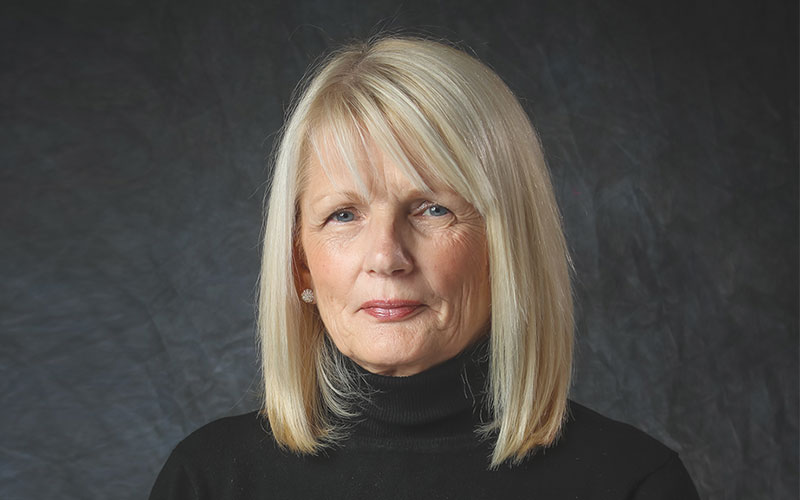Account Login
Don't have an account? Create One

The fact is our global terrestrial resources are tapped out. At the same time the global population continues to grow in leaps and bounds and with it the demand for sustainable healthy food.
At a very early age our children learn about terrestrial farming of animals. Cows, pigs, sheep and chickens become part of their early vocabulary as they discover how they get their milk, eggs and their favorite—ice cream. Terrestrial farming is ingrained in our culture. The same cannot be said for ocean farming.
In 1968, around the same time the environmental movement was taking off in North America, Jacques Cousteau, who pioneered marine conservation, told the world “to start using the sea as farmers instead of hunters”. That message has yet to resonate in Canada where the development of a Blue Economy Strategy (BES) is currently underway.
The development of the BES began with an Engagement Paper released earlier this year by Fisheries and Oceans Canada that kicked off a series of roundtable discussions led by the Minister of Fisheries and Oceans. One section is devoted to “Positioning Canada’s Blue Economy for Growth and Success” stating the need for a single, comprehensive strategy to guide our investments and policies toward a single, clear goal of a strong, sustainable blue economy.” A single strategy will be challenging considering Canada has by far the longest coastline of any country in the world: 243,042 km shared over three unique coasts that demand that uniqueness be recognized to be sustainable. The Atlantic region is one of those coasts and it is here where ocean salmon farming (that consistently has an 80 per cent public approval rate), began more than 40 years ago.
In 2020, before the world pivoted and we all responded to COVID-19, salmon farmers called on the Atlantic premiers and ministers responsible for aquaculture to align in the development of a common vision for aquaculture in Atlantic Canada. That vision would support regional development by contributing to Canada’s Blue Economy as well as the Atlantic Growth Strategy goal of long-term economic prosperity in our region.
Aquaculture is a responsible, sustainable and innovative means to provide adequate food supply to meet the world’s population growth while helping to reduce the pressure on wild fish stocks. The Atlantic coasts are an abundant natural ocean environment which makes them one of the best locations in the world to farm fish, especially Atlantic salmon, in an environmentally sustainable way. Sustainability is salmon farming’s competitive advantage. We have the lowest feed conversion rate of any animal protein, and aquaculture is recognized by the Food and Agriculture Organization (FAO) of the United Nations as one of the priorities to address climate change. We are also an industry playing a critical role in many wild salmon conservation programs.
The growing importance of aquaculture to feed the world opens a window of opportunity for seafood producing regions like Atlantic Canada. Over 70 aquatic species are licensed for farming in Atlantic Canada. According to Statistics Canada the bulk of that production value is made up of Atlantic salmon (85 per cent). Atlantic Canada’s salmon farming sector generates more than 8,000 jobs (with the youngest demographic of any farmers) and contributes over $2 billion to the Canadian GDP. Our farmers grow 323 million meals of salmon every year in Atlantic Canada (RAIS Inc.2020), which helps to meet the global demand for seafood.
The Atlantic provinces lead the development of many of the alternative emerging species, a significant opportunity for additional economic growth in the region. Companies operating in Atlantic Canada are well positioned to seize this opportunity. No other global location offers such a wide range of aquaculture opportunities in such a high-quality growing environment. Ocean farming has such potential here in Atlantic Canada. The demand for Atlantic salmon will continue to grow. It’s one of the most popular seafoods in the world.
To take advantage of the opportunity of that demand, provinces in Atlantic Canada must continue their successful collaboration and align once more in the development of a common vision for our aquaculture sector. That vision would ensure Atlantic Canada’s important role in ocean farming is recognized in Canada’s Blue Economy Strategy.
We are proud of our industry in Atlantic Canada, and know our provincial leaders are as well. It’s time for our elected representatives to demonstrate that pride and the important role they will continue to play to grow the most sustainable ocean farming industry in Canada. •
Comment policy
Comments are moderated to ensure thoughtful and respectful conversations. First and last names will appear with each submission; anonymous comments and pseudonyms will not be permitted.
By submitting a comment, you accept that Atlantic Business Magazine has the right to reproduce and publish that comment in whole or in part, in any manner it chooses. Publication of a comment does not constitute endorsement of that comment. We reserve the right to close comments at any time.
Cancel